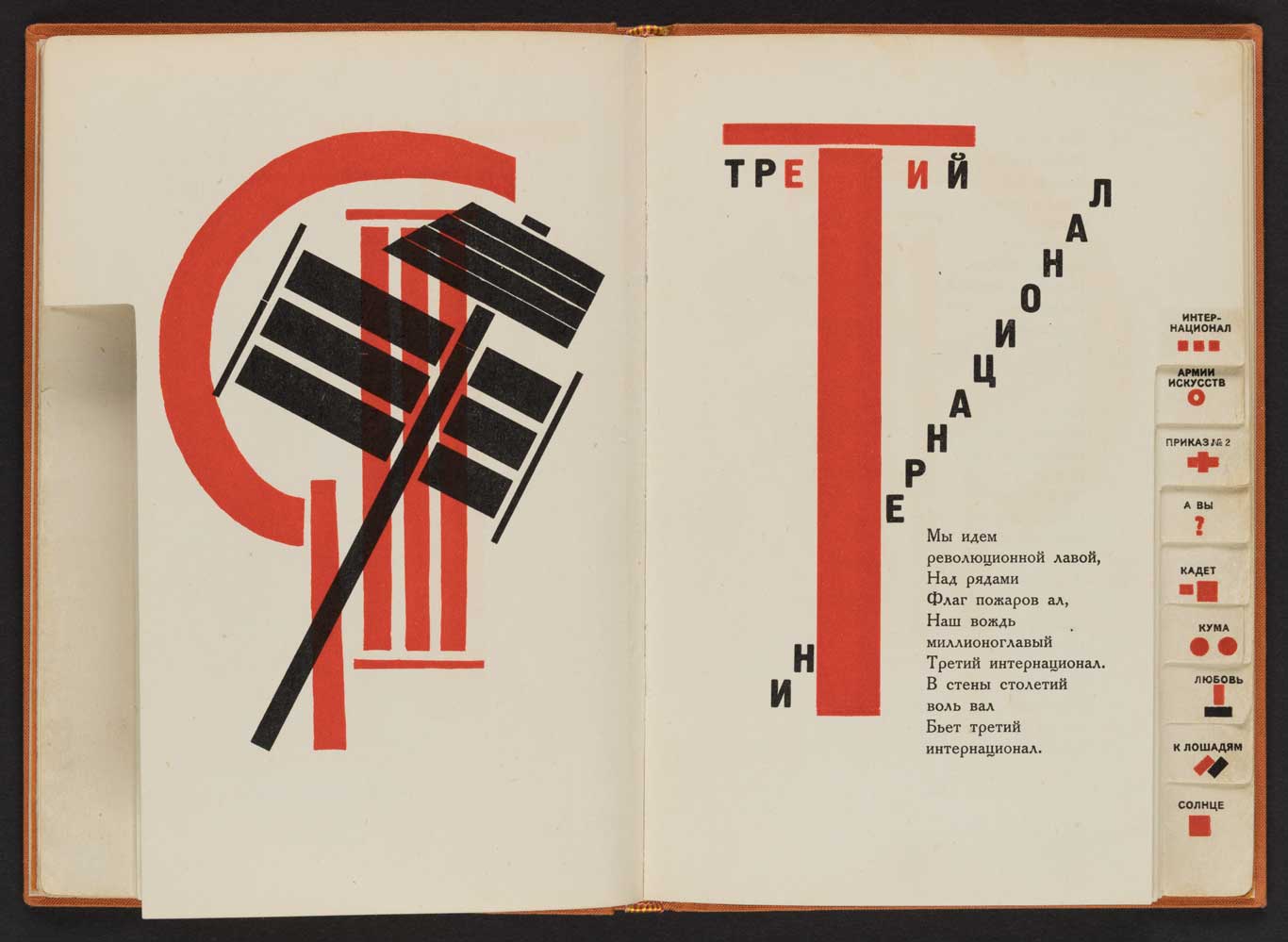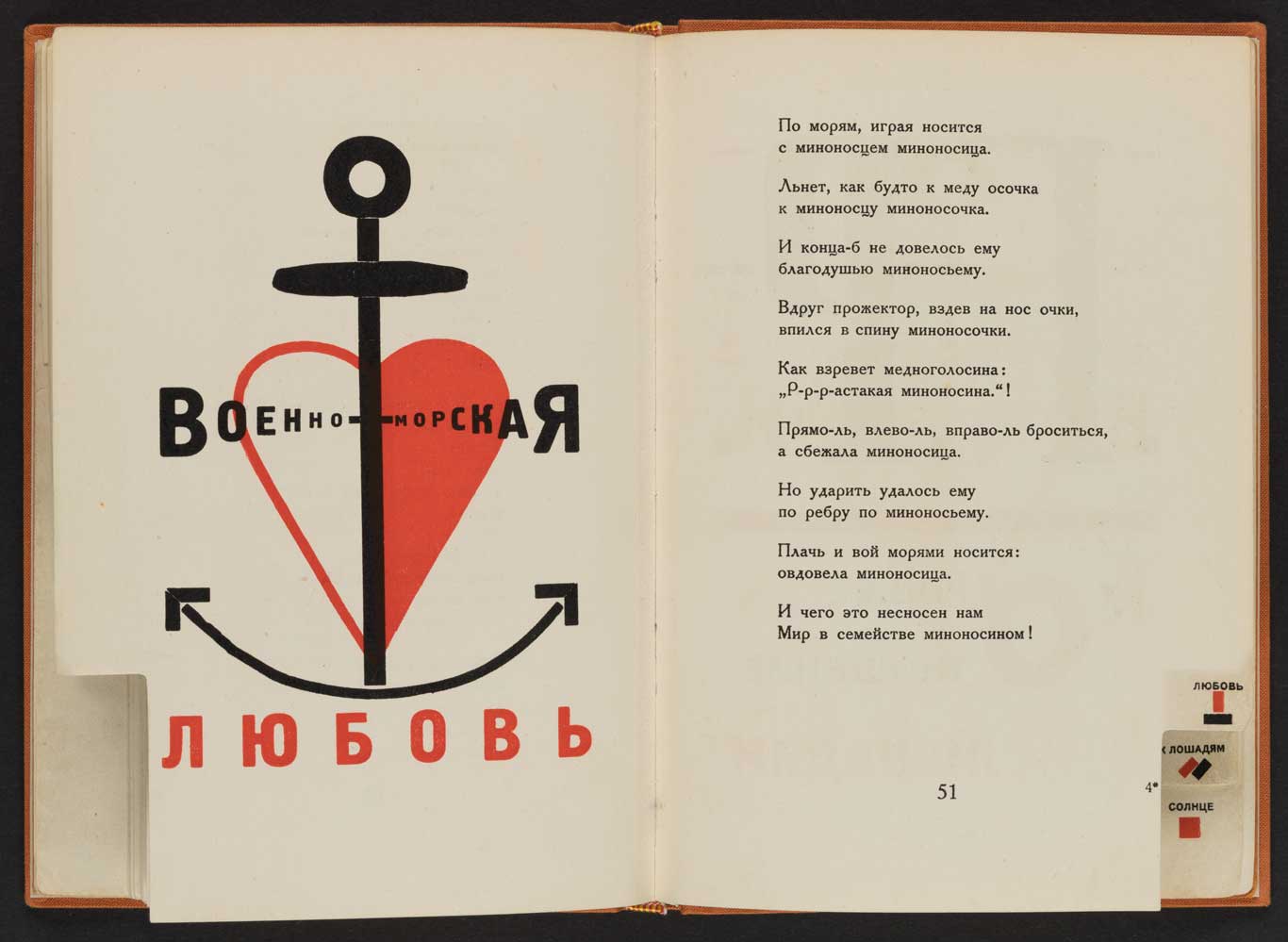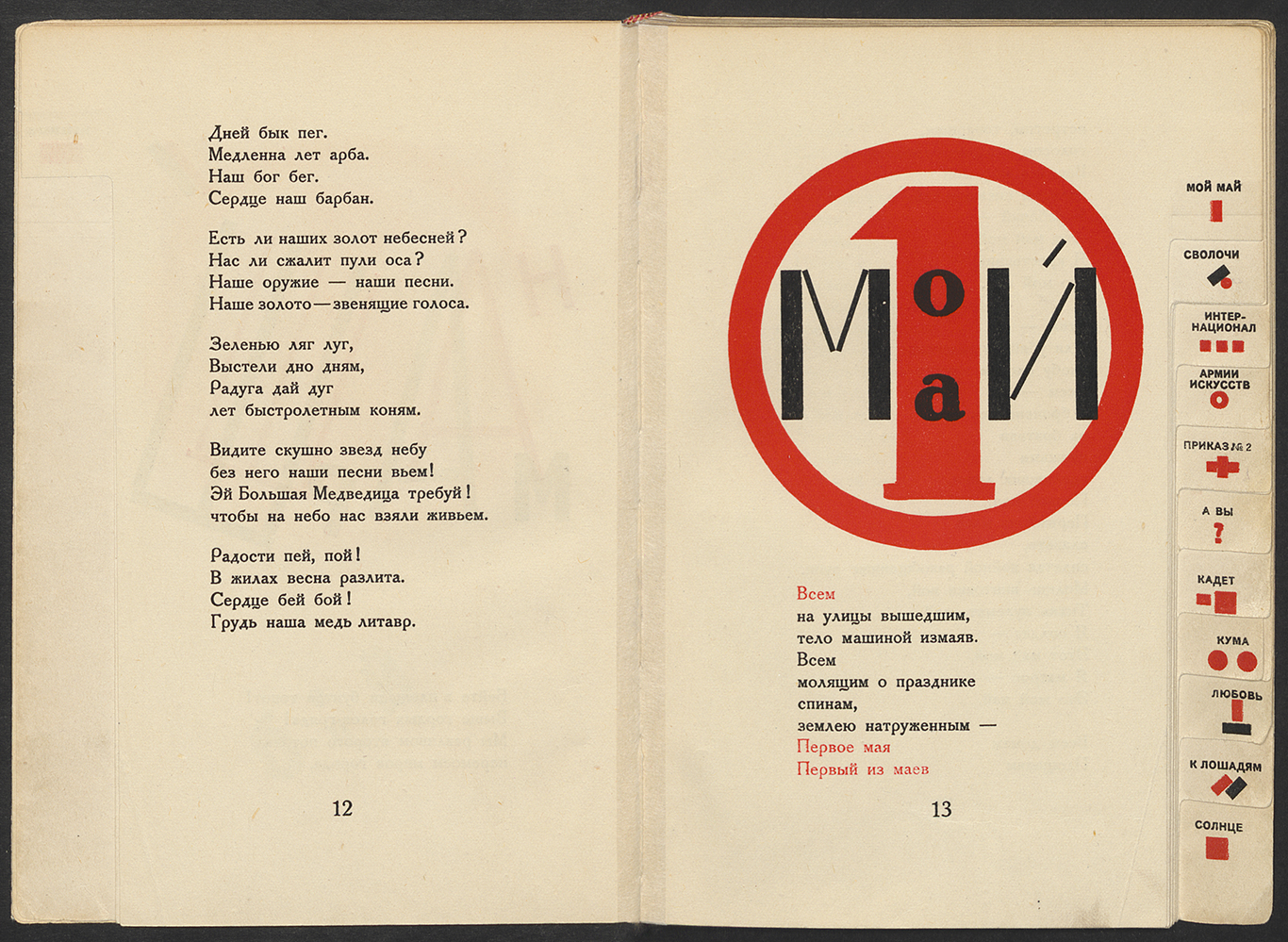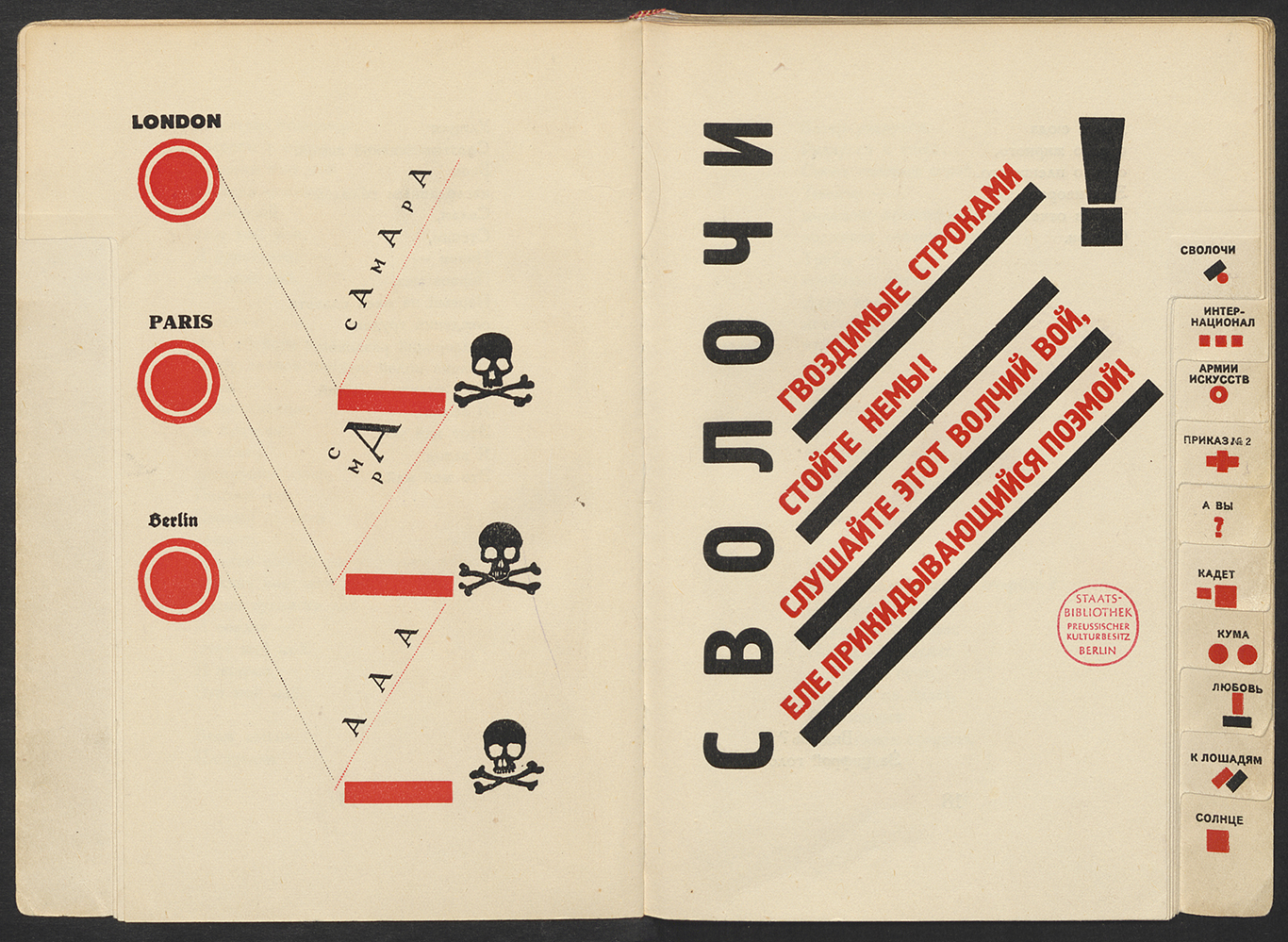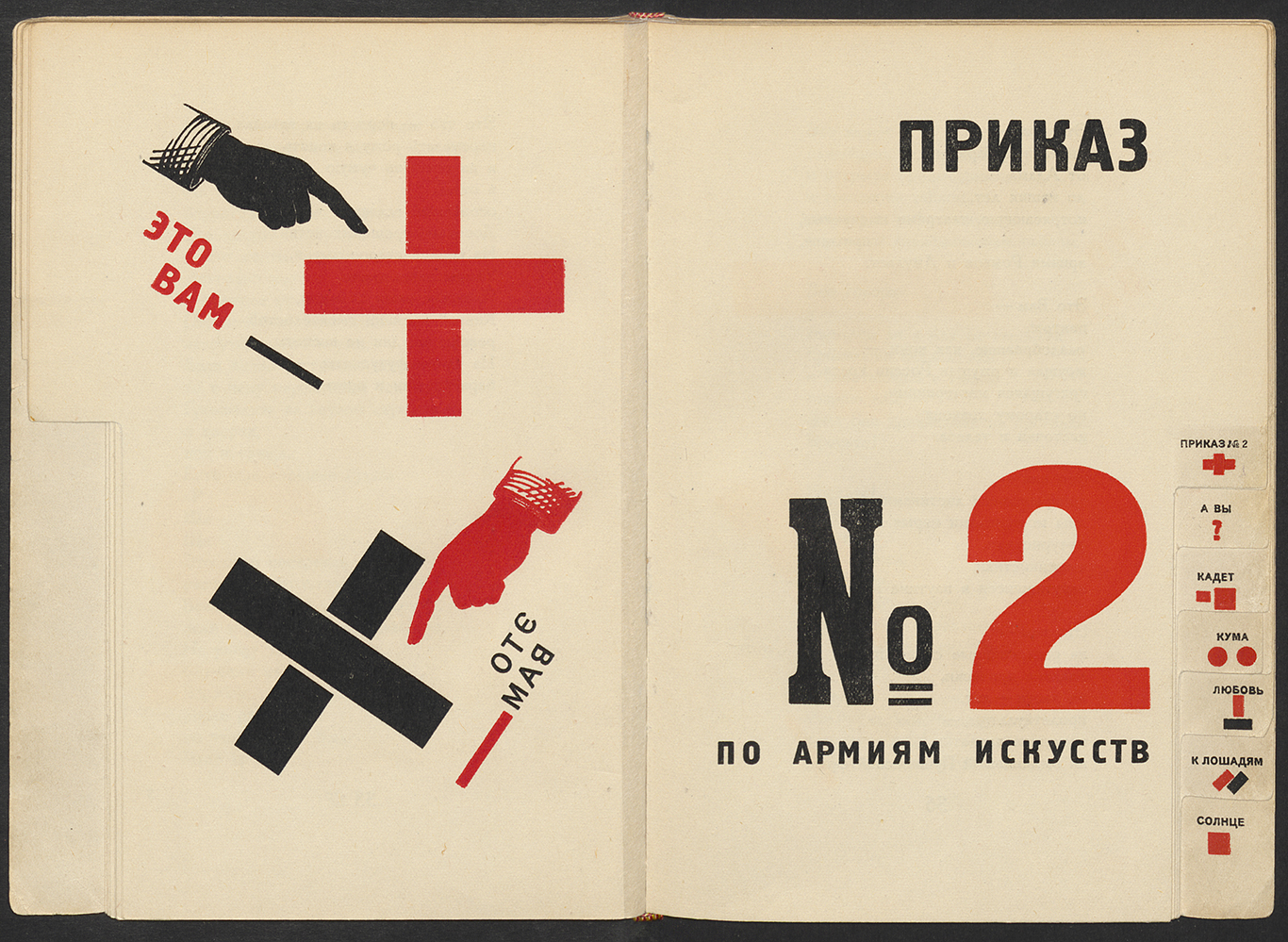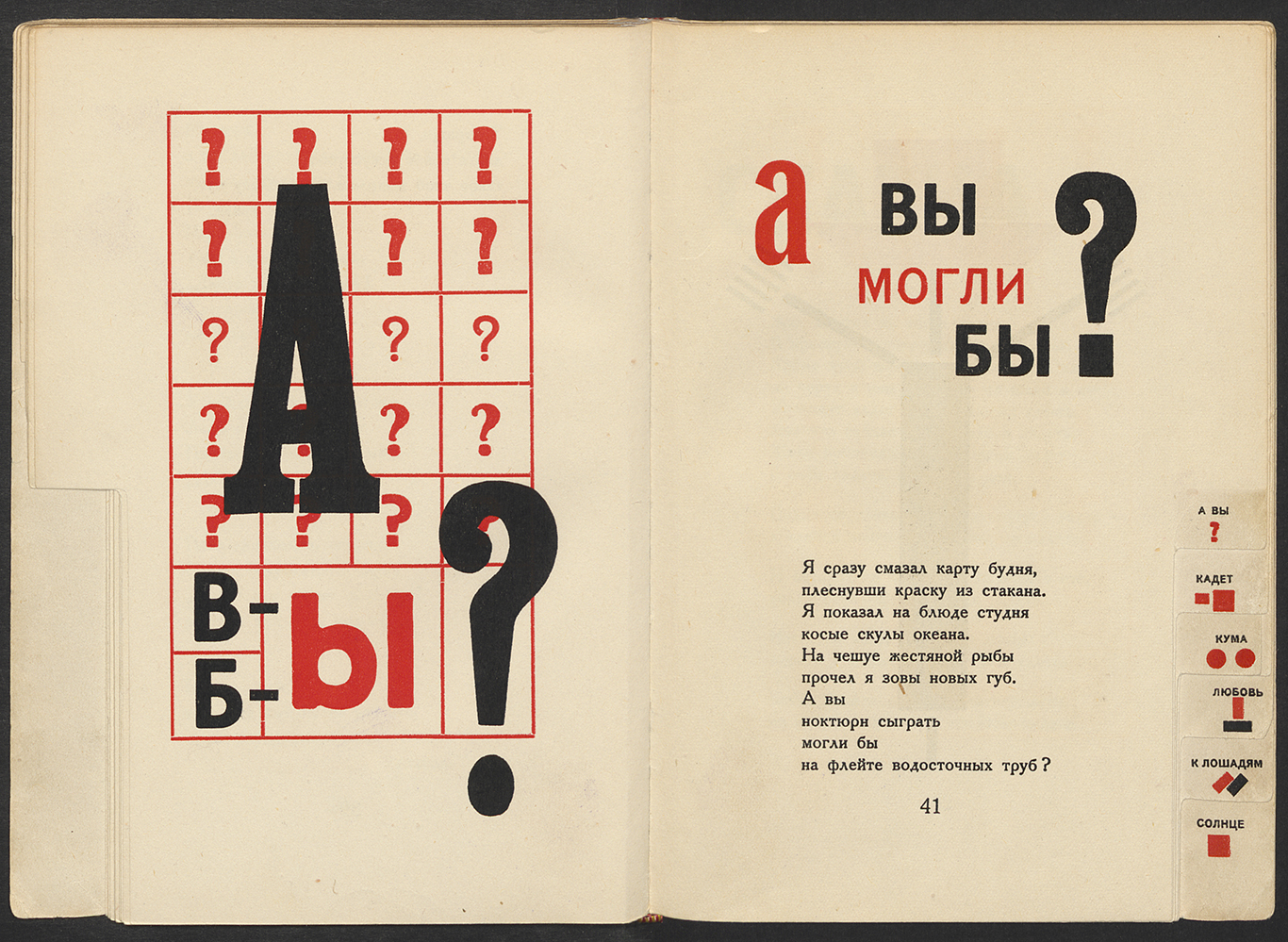13
Berlin, the centre of artists in exile
Legacies of the Russian avant-garde
in the Staatsbibliothek
Russian literature and publications on literature, the history of arts and culture from 1900 to 1939 is one collecting focus of the Eastern Europe Department of the Staatsbibliothek zu Berlin. This is especially true for avant-gardist literature and publications in Russian language, published in Berlin. Around 3,000 titles of this important Berlin scene were published in the 1920s, about 90 percent of these titles are available in the Staatsbibliothek. Nowadays the Staatsbibliothek zu Berlin holds one of the most comprehensive collections of Russian avant-garde literature in the world.
After the Russian Revolution, a centre for Russian emigrants in Western Europe was established in Berlin. In the 1920s, numerous well-known Russian writers, actors, artists, and scholars lived In Berlin. A staggering number of over 70 Russian publishing companies and bookshops were actively printing books, newspapers, and magazines in Russian. At the end of the 1970s, ‘Russian Berlin’ was key when it came to acquiring material for the Eastern Europe Department of the Staatsbibliothek zu Berlin.
Two rather remarkable items from the collection are the 1919 wall newspaper Gazeta futuristov (Newspaper of the Futurists) and the book of poems Dlja golosa (For the Voice) both by Wladimir Majakowski, who was seen as a leading figure of Russian Constructivism. Other notable items in the collection are the early works of Marina Cvetaeva, the works of Vladimir Nabokov, Ilja Ehrenburg, Aleksej Tolstoj, and Lazar Lisickij as well as material from the Russian emigré theatre, The blue Bird.
Wladimir Majakowski: Dlja golosa (For the Voice), Berlin, 1923. digital copy
The blue Bird:
The theatre pamphlet
The Theater-Kunstblatt is a collection of theatre programmes from the legendary Russian émigré theatre The Blue Bird (Sinjaja ptica in Russian). In the 1920s this cabaret in Berlin-Schöneberg was under the directorship of co-founder Jakov Južnyj (1883–1938). Later, he said he had died in Moscow in 1920, only to be reborn in Berlin in 1921.
The successful Russian emigré theatre, The blue Bird, was praised and admired by German audiences and by artists in particular. The songs and plays were often performed in Russian. The theatre was especially well-known for its easy-going mix of idyllic scenes from Russian everyday life, parodies, and amusing dances.
By the year 1929, members of the theatre had taken part in around 3,000 performances in 20 European countries and in the United States.
The blue Bird: The Theatre pamphlet, Berlin, 1921–1922.


